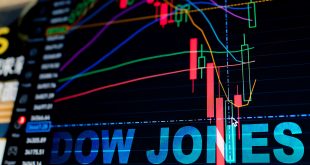The US Senate Banking Committee just advanced President Trump’s pick for the Federal Reserve, Stephen Miran, despite serious concerns about his political independence. The 13-11 vote moves Miran one step closer to joining the central bank in time for a key interest rate decision, but his unique arrangement with the White House is raising alarms.
Miran, a top economic adviser to the president, plans to take a temporary leave of absence from the White House rather than resigning his position. This unprecedented move suggests he could return to the administration after his Fed term, a relationship many fear will compromise his impartiality.
The Unprecedented Arrangement
The controversy surrounding Miran’s nomination stems from his decision to hold onto his role as chair of the Council of Economic Advisers while serving on the Fed’s Board of Governors. This arrangement has drawn sharp criticism from former White House officials, legal experts, and lawmakers from both parties, who argue that it sets a dangerous precedent.
They believe that Miran may feel pressured to align his decisions with the president’s political interests, rather than with what’s best for the economy.
This move comes as the Trump administration continues its push to reshape the central bank’s leadership. The president has publicly attacked the Fed’s policies and has even attempted to remove other governors. This has fueled concerns that Miran’s appointment is part of a broader strategy to undermine the Fed’s traditional autonomy.
A Divided Government and a Troubled Nomination
The Banking Committee’s vote is a win for the White House, but it also reflects a deep division. Senator Elizabeth Warren of Massachusetts, a vocal critic of the nomination, warned that Miran’s arrangement amounts to “servitude, not independence.” She and other Democrats have expressed concern that Miran would make decisions based on what “Donald Trump will approve or disapprove” rather than the economic data.
This legal and political battle over the Fed’s independence is just beginning. The administration is also appealing a judge’s ruling that blocked the removal of another Fed governor, Lisa Cook. If that appeal fails and Miran’s nomination is confirmed, the president would have even more influence over the central bank’s powerful board. This ongoing conflict raises critical questions about the future of the Fed’s independence and its ability to effectively manage the nation’s economy without political interference.

 Noor Trends News, Technical Analysis, Educational Tools and Recommendations
Noor Trends News, Technical Analysis, Educational Tools and Recommendations




